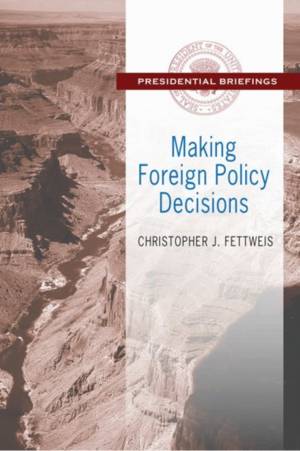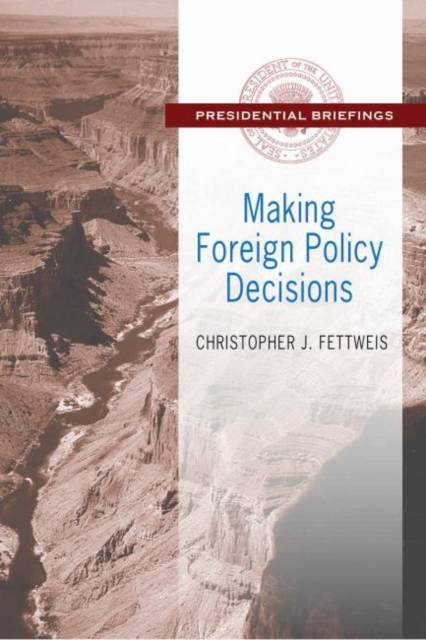
- Afhalen na 1 uur in een winkel met voorraad
- Gratis thuislevering in België vanaf € 30
- Ruim aanbod met 7 miljoen producten
- Afhalen na 1 uur in een winkel met voorraad
- Gratis thuislevering in België vanaf € 30
- Ruim aanbod met 7 miljoen producten
Omschrijving
It is often said that voters hold presidents responsible for two things: the economy and foreign policy. Economic performance is generally beyond presidential control, but foreign policy is defined by the president. The White House is justifiably blamed or credited for how it manages relations with the outside world.
How, then, can presidents maximize their chances to achieve successful foreign policies? What kinds of considerations should they bear in mind as they make important decisions for their country? Foreign policy begins with the process of making decisions. This briefing book examines foreign policy decision-making, and offers advice to current and future presidents drawn from fields ranging from political science and history, to psychology and economics. It identifies basic guidelines that presidents should consider when making choices. Such guidelines apply to almost any area of human endeavour, and they are certainly central to choices made in and outside of the Oval Office.
When the strong make mistakes, the weak often suffer. As the strongest country in the history of the world, the United States has a special responsibility to run a sagacious foreign policy. This briefing book will benefit students, policy makers, and the general public.
Specificaties
Betrokkenen
- Auteur(s):
- Uitgeverij:
Inhoud
- Aantal bladzijden:
- 112
- Taal:
- Engels
- Reeks:
Eigenschappen
- Productcode (EAN):
- 9781412862639
- Verschijningsdatum:
- 30/08/2015
- Uitvoering:
- Paperback
- Formaat:
- Trade paperback (VS)
- Afmetingen:
- 135 mm x 211 mm
- Gewicht:
- 136 g

Alleen bij Standaard Boekhandel
Beoordelingen
We publiceren alleen reviews die voldoen aan de voorwaarden voor reviews. Bekijk onze voorwaarden voor reviews.









